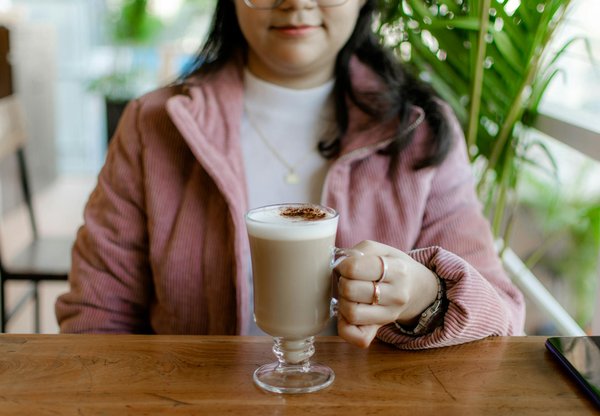Trending Eco-Friendly Fabrics Favoured by UK Designers
The UK fashion scene is rapidly embracing eco-friendly fabrics as part of a broader commitment to sustainability. This shift reflects growing consumer demand for environmentally responsible choices and a drive among designers to reduce their carbon footprint. Among the UK fashion trends, sustainable textiles have become a focal point, influencing design aesthetics and production methods.
Several key factors shape fabric popularity among UK designers. These include the sustainable textiles’ environmental impact, such as lower water usage, biodegradability, and minimal chemical processing. Additionally, the tactile qualities and versatility of these fabrics matter greatly, allowing designers to maintain creative freedom while prioritising eco-conscious materials.
Currently, some of the hottest eco-friendly fabrics featured in UK collections are organic cotton, hemp, and Tencel lyocell. Organic cotton is prized for its reduced pesticide use. Hemp offers durability and excellent breathability with a notably small environmental footprint. Tencel lyocell, made from sustainably sourced wood pulp, stands out for its smooth texture and efficient water usage during production. Each fabric’s unique combination of aesthetics and sustainability continues to appeal strongly in the UK market, making them central to the evolving fabric landscape.
Fabric Properties and Environmental Advantages
Understanding the sustainable fabric properties behind trending eco-friendly fabrics is essential for evaluating their true impact. For example, organic cotton is grown without synthetic pesticides, directly reducing harmful chemical runoff. Hemp, derived from the stalks of the cannabis plant, requires minimal water and grows quickly, resulting in a notably low carbon footprint. Tencel lyocell is produced using a closed-loop process that recycles solvents, dramatically cutting waste and water use.
Each fabric’s environmental benefits extend beyond raw materials. Biodegradability is a key advantage: unlike many synthetic textiles, these eco textiles UK designers prefer break down naturally, reducing landfill accumulation. The carbon footprint of these fabrics is significantly lower compared to conventional textiles, due partly to energy-efficient farming and processing methods.
Certifications also matter deeply in this sector. Labels like GOTS (Global Organic Textile Standard) for organic cotton or FSC (Forest Stewardship Council) certification for Tencel ensure compliance with strict environmental and social criteria. Such standards give UK designers confidence that fabrics meet sustainability claims, supporting transparent and ethical sourcing practices. This combination of natural composition, reduced resource use, and verified standards underpins the growing popularity of sustainable fabrics across the UK fashion industry.
Leading UK Designers and Brands Championing Sustainable Fabrics
UK sustainable fashion designers are increasingly making eco-friendly fabrics central to their collections. Designers like Stella McCartney have long championed sustainable textiles, blending style with environmental responsibility. More recently, emerging designers are also embracing this approach, highlighting the broadening appeal of eco fabric brands. Their collections often showcase organic cotton, hemp, and Tencel lyocell, proving that sustainability and creativity coexist.
Designer case studies reveal strong commitments to transparency and ethical sourcing. For instance, some brands collaborate directly with suppliers who provide certifications such as GOTS or FSC, ensuring the authenticity of sustainable textiles. These collaborations help designers maintain traceability from raw material to finished garment, reinforcing trust in eco-friendly fabrics across the UK fashion trends.
Notable initiatives include capsule collections made exclusively with eco textiles UK manufacturers produce. These efforts not only boost visibility for sustainable fabrics but encourage other brands to adopt similar practices. With an emphasis on innovation and responsibility, leading UK sustainable fashion designers continue to set examples of how style and sustainability can thrive together in today’s market. Their work demonstrates practical ways to integrate eco-friendly fabrics without compromising on design excellence or consumer appeal.
Sourcing Tips for Eco-Conscious Fashion Creation
Finding reliable eco textiles UK suppliers is crucial for designers committed to sustainability. Many UK suppliers specialise in sourcing sustainable fabrics with verified credentials, offering materials like organic cotton, hemp, and Tencel lyocell. Designers should prioritise suppliers who provide clear information on certifications such as GOTS and FSC; this transparency ensures fabric authenticity and supports ethical production.
When selecting eco-friendly fabrics, quality and sustainability must go hand in hand. Assess fabric durability and feel alongside environmental credentials. It’s advisable to request samples to examine texture and performance. For small brands or independent designers, working with local UK suppliers reduces transport emissions and fosters stronger partnerships.
Additionally, consider the entire fabric lifecycle—from cultivation through processing to end-of-life biodegradability. Suppliers who invest in closed-loop or low-impact manufacturing processes contribute significantly to reducing ecological footprints. Asking about chemical use and water consumption during production can provide deeper insights into a fabric’s sustainability.
In summary, effective sourcing sustainable fabrics involves researching suppliers thoroughly, verifying certifications, and balancing aesthetic and environmental priorities. Independent designers should leverage networks, attend trade fairs, or collaborate with eco-conscious UK manufacturers to access innovative eco textiles UK. This strategic approach helps maintain quality while advancing sustainability in today’s UK fashion trends.
